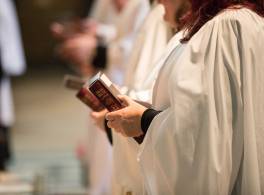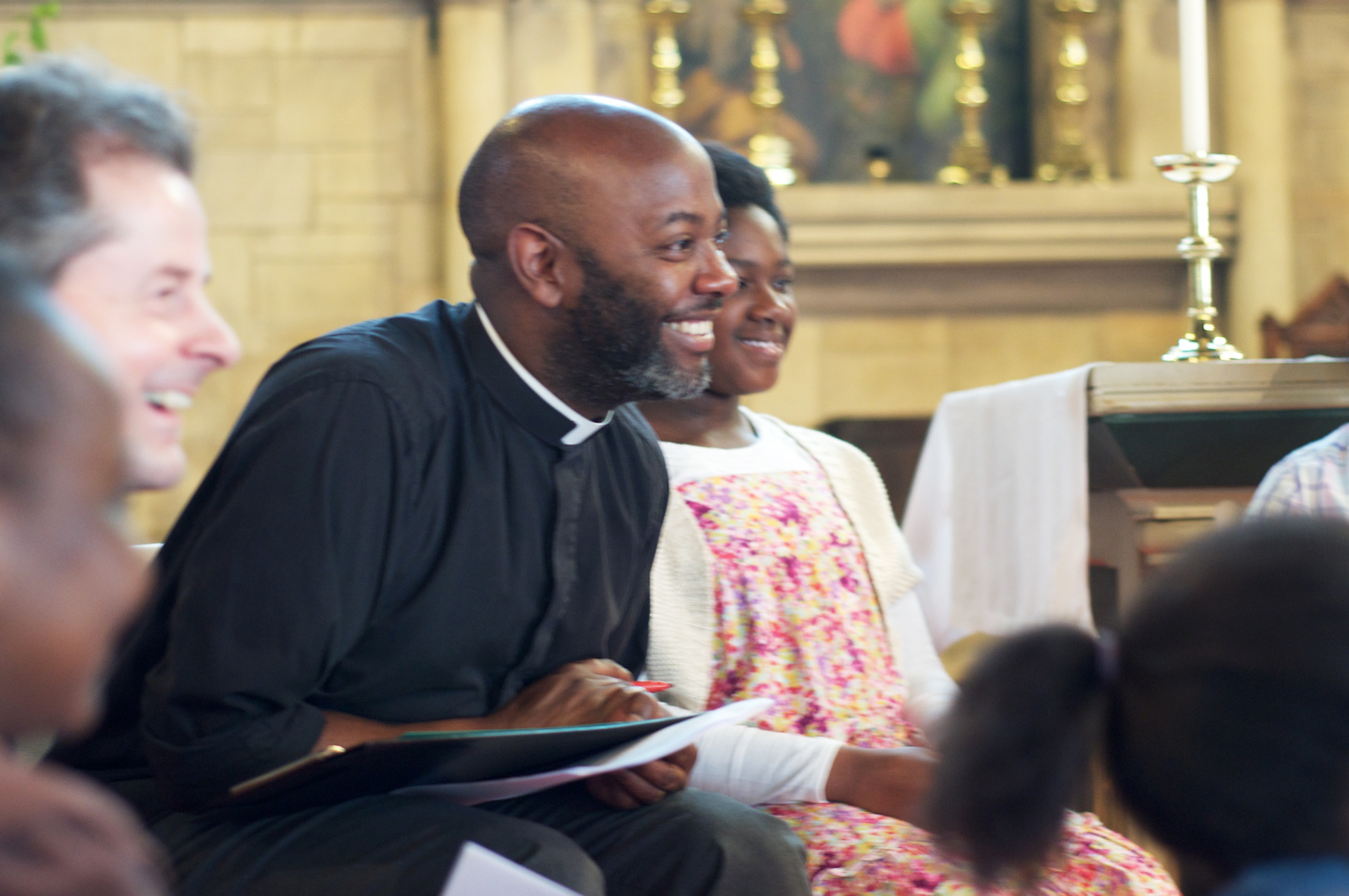
How does ordination work?
The first step towards ordination is to talk to your vicar, chaplain, or equivalent, or to a member of the vocations team in your diocese. Your diocese will work with you to identify what type of ministry is right for your unique gifts and talents. When they know you are ready, your bishop will send you to a selection residential known as a Bishop’s Advisory Panel. The panel will decide whether to recommend to your bishop that you go forward for ordination training.
Once recommended, you will prepare for ordination at a theological education institution. There are numerous pathways available, the most common falling into residential (where you usually live in the college) and non-residential (where you train in a context based setting).
Upon successful completion of your course, you will be ordained a deacon by your bishop, and will begin a curacy in a parish. Your curacy is an opportunity to serve alongside an experienced vicar, putting into practice the knowledge gained from your course and learning from them as you prepare for your own ministry.
As a deacon you are able to do weddings and baptisms, but you must be ordained priest before you can preside over Holy Communion. You will most likely be ordained a priest by your bishop after a year of curacy, provided this is the type of ministry you have been training for.
Practical guidance for selection, training, and life in ministry
Testimony: Richard Springer
Testimony: John Naudé
Get in touch with your diocese
Contact the vocations team in your diocese using the form below to begin exploring whether you have a calling to ordination. Your diocese will be sent your message and contact details and may get in contact with the ministry team in your church. If you don’t know which diocese your church is in you can find out on A Church Near You. Your data will also be held the National Church Institutions.
"When he had finished washing their feet, he put on his clothes and returned to his place. 'Do you understand what I have done for you?' he asked them.
John 13: 12-16
'You call me ‘Teacher’ and ‘Lord,’ and rightly so, for that is what I am. Now that I, your Lord and Teacher, have washed your feet, you also should wash one another’s feet.
I have set you an example that you should do as I have done for you. Very truly I tell you, no servant is greater than his master, nor is a messenger greater than the one who sent him.'"





